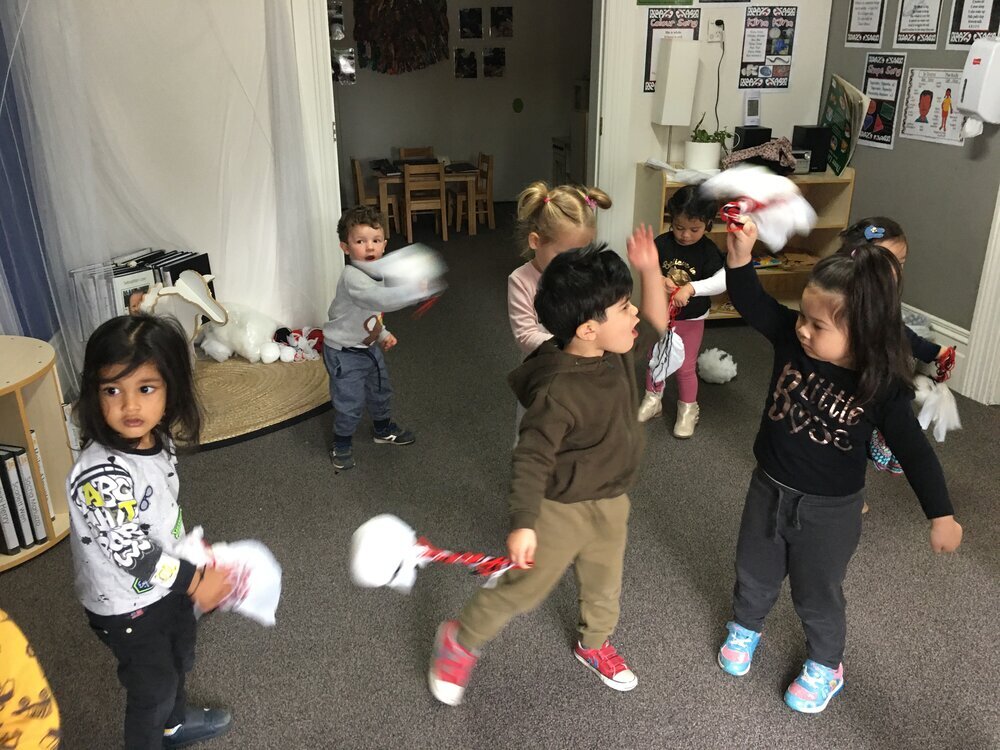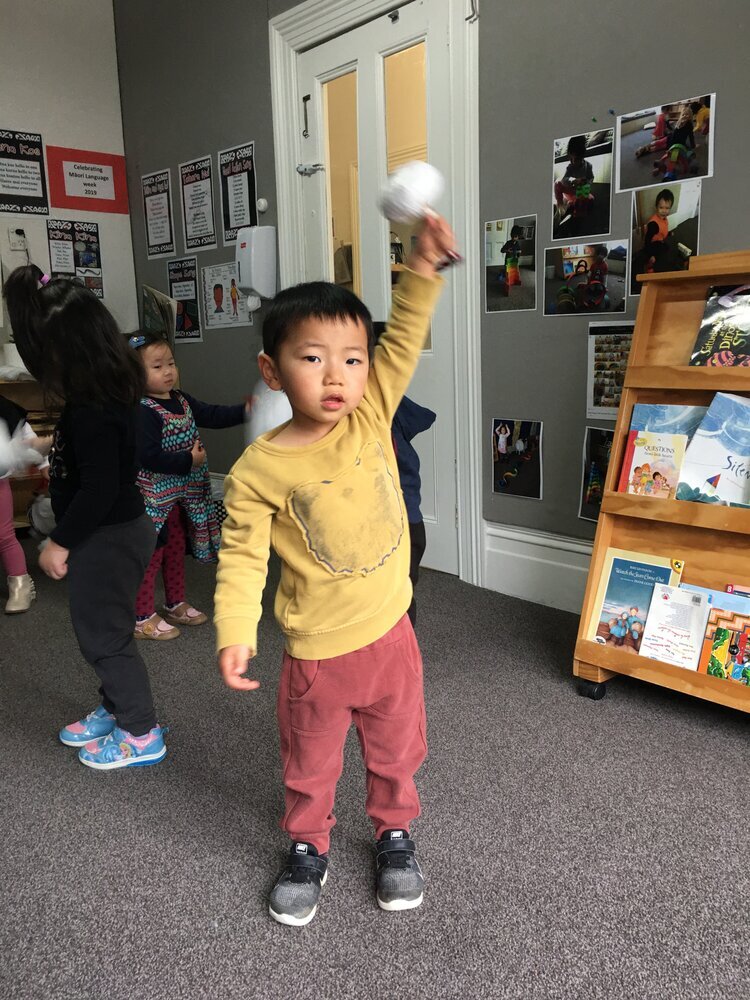MAORI LANGUAGE WEEK
Te Wiki o Te Reo Māori is an important and fun opportunity to celebrate and learn Te Reo Māori. Every day of the week, we provided the children with the opportunities to learn new phrases and tikanga (principles and values) to enhance their knowledge. The children were offered a range of learning experiences so that they could discover elements of the Māori culture daily.
To celebrate Māori Language Week, kaiako introduced tamariki with different forms of Māori experiences such as waiata, karakia, pakiwaitara and tunu. At the beginning of the week tamariki learnt new greetings, so in the morning they were able to greet their friends with mōrena and at the end of the day as we were saying goodbye, they said see you again, ka kite.
During mat time kaiako invited tamariki to sing a new waiata called ‘Hari Koa Koe’- pakipaki’, similar to ‘If you are happy and you know it clap your hands’. Tamariki and kaiako learnt the meaning of the song and the actions through Māori words such as Hari koa koe (I am very happy), pakipaki (clapping) and kanikani (dancing). Tamariki also explored how to make poi with the use of recycled materials such as plastic bags, wool and cotton. Kaiako played the traditional Māori poi music, and tamariki sang along and moved to the music beat with the poi they made.
In the Māori culture, karakia is done to give thanks for the kai given as it nourishes our tinana, which feeds our wairua. Tamariki and kaiako sing karakia regularly before every meal at Daystar. This week, tamariki were introduced to a new karakia called ‘Karakia mō te kai’. It was a prayer for food in the form of waiata which encourages children to be engaged in the karakia with actions. Kaiako displayed the waiata and karakia on the wall of the dining area and family room at tamariki eye level, to develop and enhance early literacy. Tamariki enjoyed doing the actions of new waiata and karakia.
During meeting time a new Māori pakiwaitara was introduced called Arohanui. In the story Mawadda and Aroha baked Māori bread called Rēwena (Potato bread). Kaiako asked the tamariki whether they were interested in making the Rēwena bread, and tamariki enthusiastically agreed. Tamariki watched a video on how to make the bread and investigated what rēwana bread is made of. New words such as riwai (potato), pata (butter), parāoa (flour) were also introduced. Kaiako and tamariki learnt that sharing kai is common in Māori culture as it plays a significant part in Māori tikanga. Tamariki and kaiako shared the Rēwena bread during the afternoon tea time with everyone.












